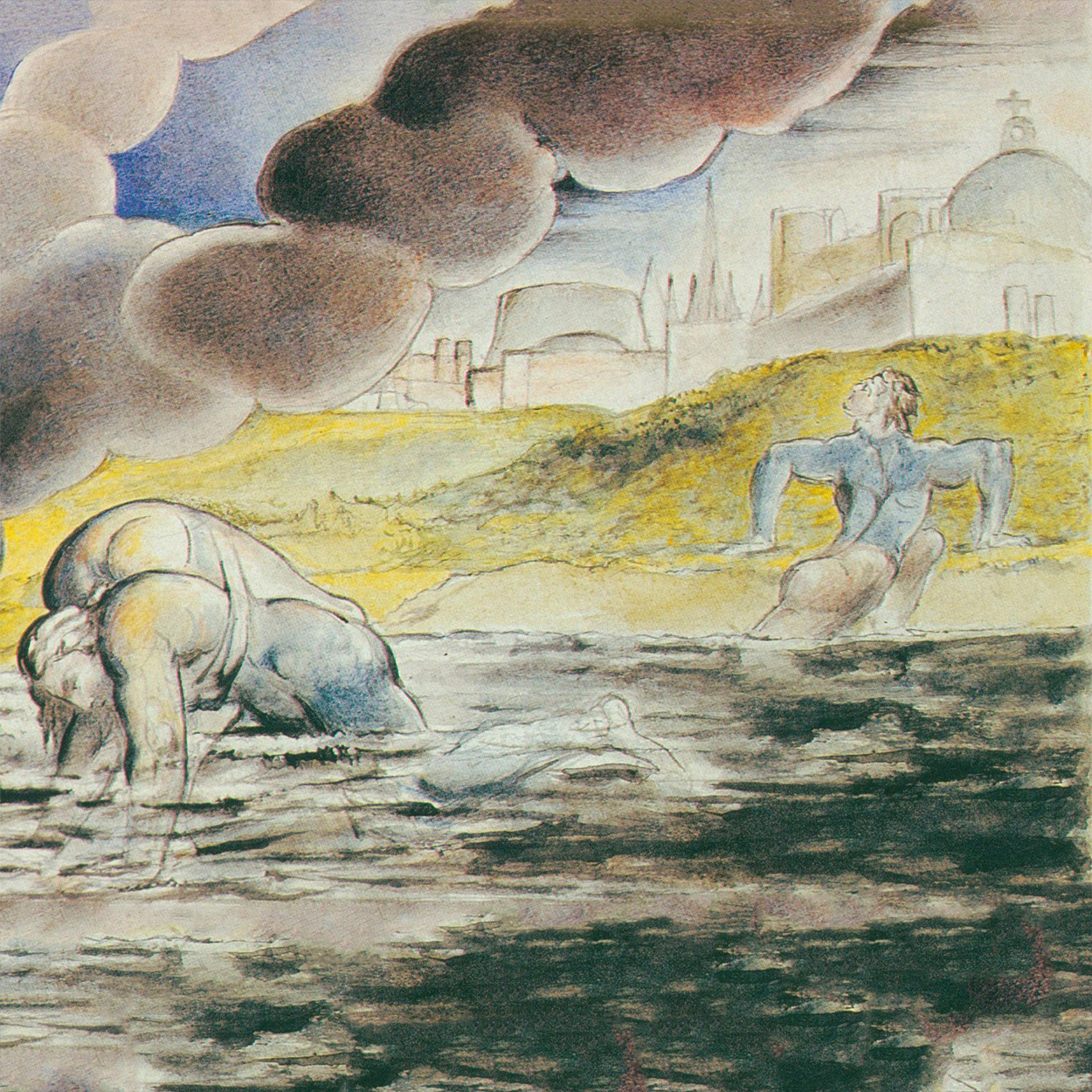When I published my last essay on political ignorance, a friend of mine was kind enough to share it on his Facebook wall. One of the commenters hilariously posted the “I’m In This Photo and I Don’t Like It” meme in response, indicating that the information regarding the extent of political ignorance in America struck a little too close to home. I want to continue prodding at our political selves in hopes of triggering some more self-audits, reflection, and maybe even some added humility. In the previous essay, I hinted at the possibility of our democratic system actually incentivizing widespread ignorance. In this one, I intend to explore this claim further and offer some reasons as to why political ignorance is so vast. I will also consider whether or not political knowledge has any impact on personal policy preferences.
Scholars are quick to distinguish between ignorance and stupidity. Being uninformed is not the same as being dumb. For example, I hope my dental hygienist wife doesn’t think I’m an idiot simply because I know next to nothing about dentistry. Similarly, not being up to speed on politics doesn’t make a person unintelligent. This distinction between intelligence and ignorance is illustrated in the reality that political knowledge among the general public has—according to George Mason University’s Ilya Somin—remained largely stagnant since the 1930s despite rising educational attainment and IQ scores. Agreeing with previous economic theories of democracy, Somin determines that most political ignorance is in fact rational. How so? Political knowledge is costly in time and effort with little payoff in terms of political influence. Democratic voting diffuses political power across large masses of people, consequently diluting the influence of a single individual. Thus, an American voter has a 1-in-10 million chance of changing the outcome of a presidential election. This optimistic number occurs only within a few swing states and only if the voter votes for one of the candidates in the two major parties. On average, however, the chance is 1-in-60 million. Economist Steve Landsburg put it this way: “I have a better chance of winning the Powerball jackpot 7,400 times in a row than of affecting the [presidential] election’s outcome.” Georgetown professor Jason Brennan argues that, from a strictly mathematical standpoint, the possible risk of getting into an auto accident while driving to the polls is higher than the utility of the vote cast upon arrival.
That doesn’t diminish the higher value of an informed electorate—only to suggest that the perceived impact of a single vote is understandably limited. Numbers improve when it comes to U.S. Congressional elections (1-in-89,000) and state legislator elections (1-in-15,000), but the probability of changing the outcome remains incredibly low. Of course, this is not to say that decisive single votes never happen, only that they are extremely rare.
This is not cynicism. It’s just math. Despite the romanticism of it all, “We the People” would almost certainly look the same with or without my vote.
Of course, were this to become the mentality of most voters (as one could argue is increasingly happening), the effects would be, and are, sizeable. I’m simply pointing out here that given these hard data, political ignorance could be argued to be, in part, a rational trade-off. As Somin points out, it shouldn’t surprise us that “even a 100 percent altruistic person” may not “devote much of his time to acquiring political information for the sake of casting an informed vote.” He goes on to reiterate: “No matter how great the benefits to others of a “correct” electoral outcome, the altruist’s ballot has almost no chance of bringing it about; in a large electorate the chance that his vote will be decisive is vanishingly small.”
Economist Bryan Caplan’s explanation for voter ignorance extends beyond rational ignorance to what he calls rational irrationality: “Since delusional political beliefs are free, the voter consumes until he reaches his “satiation point,” believing whatever makes him feel best.” Not only does the acquisition of political knowledge provide a low return on investment, but irrationality can provide self-satisfaction at virtually no cost. This makes the choice to be seemingly irrational when it comes to politics understandable and arguably—if paradoxically—rational.
Case in point, a 2019 study finds that “those who hold extreme political values report higher levels of happiness. The large effect of partisanship and extreme views on reported happiness support the view that partisanship is a result of social identity and provides a psychological need for certainty and structure.” In other words, being a member of the One True Party feels really good, which makes change unlikely. “Why are ideologues so happy?” asks Harvard professor and former AEI president Arthur Brooks.
The most plausible reason is religion—not real religion, but rather, a secular substitute in which they believe with perfect certainty in the correctness of their political dogmas. People want to hold the truth; questioning is uncomfortable…True political believers are martyrs after a fashion willing to shout slogans in public for causes they are sure are good, or against causes they are convinced are evil. They are happy because—unlike you, probably—they are positive they are right. No data could change their minds.
Caplan elsewhere provides another likely explanation for voter ignorance: poor information retention. Drawing on literature in educational psychology, Caplan finds the “transfer of learning” in our educational systems to be less than impressive. Most students are unable to retain or apply their newfound methodological reasoning outside of the classroom and can usually only do so within the classroom after being instructed to apply a particular principle to their problem-solving. In other words, test questions tend to prime students to use, say, certain formulas on particular questions. Yet, when these same students are presented with a similar problem in the real world, they fail to apply the very formulas they were tested on. When faced with the real-world applications of questions individual voters may have studied previously, it probably shouldn’t surprise us then, to see them not drawing on this prior knowledge.
“Yet it turns out that information does matter. What policies people advocate depends on what they know.”
Ian Anson of the University of Maryland introduces a more disturbing angle on the persistence of voter ignorance. In a 2018 study, Anson points to what is known as the Dunning-Kruger effect: “[a] widely cited phenomenon in social psychology [that] holds that individuals with low levels of competence will judge themselves to be more competent than they really are, while those with high levels of competence will underestimate their excellence.” This overestimation of one’s abilities and/or knowledge “affect[s] the ability of low achievers to overcome their incompetence because they are unaware that they lag behind others until their objective performance is measured and reported to them.”
After surveying two groups (a total of 2,606 American adults) on political knowledge, Anson had participants evaluate their performance after priming them with partisan cues. The results show that the worst performers (i.e., the most politically ignorant) were more likely to overestimate their performance. What is worse, this overconfidence is exacerbated by partisanship. “The rationally ignorant fail to overcome their ignorance not just because they face steep costs and lack incentives to improve,” writes Anson, “but because they are unaware that they are relatively ignorant. They become increasingly hardened to the possibility that they are uninformed when partisan identities are activated.”
In short, scholars increasingly embrace a theory of rational ignorance among voters: due to the poor incentives provided by a democratic system, most citizens determine that the costs of political knowledge (including the difficulty of making it stick) outweigh its benefits. Furthermore, the poorly informed suffer from what Anson calls “the double burden of incompetence” due to ignorance of their own ignorance, making change unlikely.
But does the degree of political knowledge really matter all that much? Does it have any measurable effect on policy preferences? According to Brennan, “If political ignorance had no effect on our policy preferences, if well- and badly-informed people had the same political opinions, then ignorance and misinformation wouldn’t matter. Yet it turns out that information does matter. What policies people advocate depends on what they know.” After controlling for a number of demographic factors, political scientist Scott Althaus finds that high-information and low-information voters differ on numerous policy preferences, including (but not limited to) military intervention, immigration, criminal justice reform, welfare, taxes, and environmental protection. However, these differences are not just between opposing political parties. As Brennan points out, these information/preference divisions occur even within political parties.
When we start to have strong opinions about a particular policy or candidate, we should ask ourselves, “How much do I really know about this?”
Clearly, then, these differences in political knowledge are not random—and connected to a variety of other factors. For instance, relying on a 2017 survey, Oxford economist Max Roser finds “a connection between our perception of the past and our hope for the future.” The numbers suggest “that the degree of optimism about the future differs hugely by the level of people’s knowledge about global development. Those that were most pessimistic about the future tended to have the least basic knowledge on how the world has changed.” At first blush, this may seem unrelated to policy. However, recent evidence suggests that declinism—a negative view of the current state and evolution of society—along with nostalgia for a supposedly better past, are predictive of populist support. In short, those who are the most ignorant about the real, noteworthy gains in global development tend to be pessimistic about the present state and future of the world. And those pessimistic about the present state of the world tend to be the most drawn to populism.
While all policy decisions ultimately rely on value judgments (which go beyond the blunt empirics), the evidence above suggests that degrees of political knowledge do influence policy preferences. If one is concerned about policy outcomes, one should also be concerned about voter knowledge. None of this, then, argues against an informed citizenship—as much as highlighting some of the barriers to seeing more of it in our day.
So how can this all be summed up? As an average American, I’m probably ignorant and misinformed about many things when it comes to politics, but the prevailing democratic process often appears to provide little incentive for me to be informed. This is because however important the obligation of citizen participation is, the very nature of democracy diminishes the real-life, statistical impact of my single vote to virtually nothing. Far from being dumb, it can be argued that I am acting reasonably in spending my time on something other than collecting bits of political knowledge to cast a single vote. Furthermore, laborious study can hardly compete with the emotional high of believing I’m already right about my political preferences. Why hinder my happiness with the complexity of political action? Plus, I’m likely unaware of how much I don’t know. This lack of knowledge influences my policy preferences, which puts me at odds not just with the opposing political party, but also with more informed members of my own party.
For me, the data provide two major takeaways. First, being politically informed is an uphill battle. In addition to structural incentives being against us, our own emotional biases appear to exert a sizeable influence. This means as soon as we start thinking something is simple in regards to politics a warning bell should sound. Second, knowledge changes our views. This shouldn’t come as a shock, but it’s easy to forget once we’ve settled in on a comforting half-truth. When we start to have strong opinions about a particular policy or candidate, we should ask ourselves, “How much do I really know about this?” Refusing to opine on something I know little about isn’t dodging; it’s the wise and moral thing to do.
We could do with a little moral wisdom this election year.















